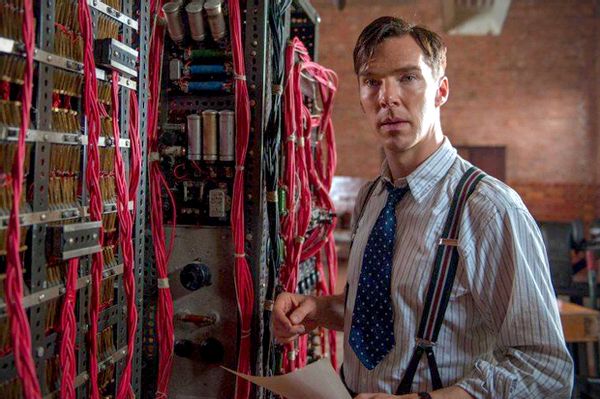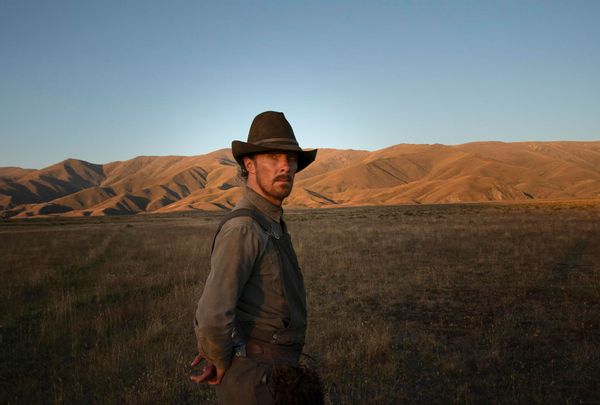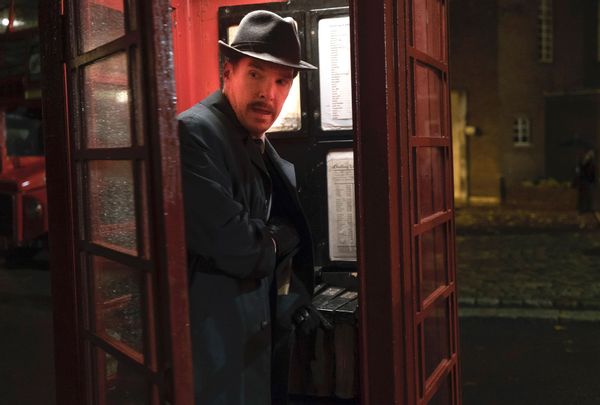
Benedict Cumberbatch excels at playing eccentric geniuses, both real and fictitious. He can be a master of hesitating stammers and tics, but his performances never seem mannered; that is his brilliance. He can play a mastermind who is insidious, or sympathetic, or even goofy — and that is why he has such appeal. The actor makes the uptight misfits he plays downright charming — even when they are bastards. And there is something fans find oddly sexy about his brainy characters; his devotees are known as "Cumberb***hes."
In his 20 years as a screen actor, Benedict Cumberbatch has amassed nearly 100 credits and two best actor Oscar nominations in addition to winning an Emmy for his work as "Sherlock," a BAFTA for his performance as "Patrick Melrose" — both signature brainy roles for him. His career, which ranges from indie to prestige, arthouse to popcorn raises the question — is Benedict Cumberbatch incapable of giving a bad performance? (His nonbinary turn as All in "Zoolander 2" might be the sole example of a misfire.)
RELATED: The power of Kirsten Dunst and Jesse Plemons
Here is a rundown of Cumberbatch's best misfits in movies that prove his genius as an actor.


But Cumberbatch play Turing as someone obsessed with what he knows, and struggles to convince others that he is right. (And yes, they slowly do come around). As Turing succeeds in his effort to crack the Enigma machine and help end the war, "The Imitation Game" sizzles. But the film's secret weapon is Cumberbatch's performance, which never feels schtick-y, even when he gets tic-y. In fact, Cumberbatch is most poignant and affecting as the film focuses on the gay Turing's chemical castration for "gross indecency." He is completely debilitated, and emotionally inert. His performance is absolutely heartbreaking.
"Doctor Strange"
Cumberbatch enters the MCU as Dr. Stephen Strange, a condescending neurosurgeon who gets a taste of his own medicine when an accident leaves him with nerve damage and renders his hands useless. Seeking help in Kamar-Taj, The Ancient One (Tilda Swinton), tells him to "forget everything you think you know," and trains him in the mystic arts. Having an out-of-body experience, Dr. Strange slowly rids himself of stubbornness, arrogance, and ambition, silencing his ego and surrendering his intellect.
Cumberbatch does not let the special effects diminish his performance. He leans into his reborn character with verve and wit — his exchanges with Wong (Benedict Wong) are dryly amusing, and he does have a comic moment with his cape. Moreover, as Doctor Strange becomes righteous, looking to save the world manipulating the space-time continuum even if it means breaking the laws of nature. "Doctor Strange" is hardly an actor's showcase, but Cumberbatch had fun when his character bargains with Dormammu, cheekily repeating a line and meeting death over and over with different inflections and outcomes. With his smarts and his sorcery, Cumberbatch is cool as a cucumber.
"The Electrical Life of Louis Wain"

Cumberbatch gives an unselfconscious performance here, which is why some folks find his eccentric nature to be admirable and inspiring. But that is also why this cat man is such an outcast — he marches to the beat of his own drum. Talking to cats, that are, as Emily tells him, "Ridiculous, frightened, and brave, like us." Cumberbatch makes Wain ridiculous, frightened, and brave, and that is why he is so endearing and inspiring.
"The Current War: Director's Cut"
In this film, Cumberbatch plays Thomas Alva Edison who is competing with George Westinghouse (Michael Shannon) to control the electricity that will power the Chicago World's Fair, among other things. Cumberbatch's cigar-chomping Edison's brain "runs and runs," and his confidence is pure arrogance. Negotiating for a half million dollars, he says, "I don't give you what you want, but you give me everything I want." Edison never wants to lose, and his is not against playing dirty, lying about his rival and smearing him as well as secretly consulting on the design of the electric chair (despite having a principle about not creating things that kill).
RELATED: "1917" is a luminous, ferociously intense "single-take" wartime experience
But as Edison's desperation in this battle against Westinghouse grows, Cumberbatch's performance becomes more internal, as if he is absorbing all of the blows and does not want to admit defeat. His body language changes along with his demeanor. He gets smaller as he is repeatedly humbled. Edison is self-aware of being a bad husband and father, and that his secretary, Samuel Insull (Tom Holland), is "more human" than him. In "The Current War," Cumberbatch pulls off the nifty trick of earning viewers' sympathy even as they root for Westinghouse. And a scene near the end, when Westinghouse asks Edison about his feelings creating the filament that changed the world, his response is quietly powerful.
Want a daily wrap-up of all the news and commentary Salon has to offer? Subscribe to our morning newsletter, Crash Course.

Phil however is overcompensating for his own self-loathing; he is a repressed gay man who takes to oiling up a saddle belonging to his mentor, Bronco Henry, or frolicking naked and pleasuring himself in a secret, remote area (away from his men, whom he covertly ogles). Phil may act tough castrating a bull with his bare hands, but he becomes vulnerable when he and Peter share a few friendly, tender moments. Cumberbatch exudes power here, sucking all the oxygen out of the room, pushing people's buttons, and delighting in being in control. It is a tour-de-force performance, and Cumberbatch delivers what may be the best work in his impressive career.

Don't dismiss Cumberbatch's fine turn in this modest Cold-War spy-thriller. As Greville Wynne, a British man who secretly delivered critical intelligence information to America, Cumberbatch transforms from a drab ordinary guy who is obsequious and apolitical to someone who becomes emboldened by his secret agent work. But this also makes him tenser, more coiled, and colder and Cumberbatch is terrific at recalibrating Wynne's emotions.
With a stake in the action, he becomes morally invested in his work but distant towards his wife (Jessie Buckley). He is no longer the fuddy-duddy who loses at golf to enhance relations with a business client, and drinks too much, but an unlikely spy who takes his frustrations out on his family. And Cumberbatch makes Wynne sympathetic as a result. He is a man trapped in a situation not of his own making, but he understands the importance of his work, even if it comes at the expense of his life. Wynne is the flip side of Alan Turing; he is a reluctant spy who sacrifices his own happiness for the greater good.
More stories you might like:
- The televisual Sherlock: The role that made Benedict Cumberbatch a star drove another actor insane
- "Patrick Melrose" and Benedict Cumberbatch's darkness fix
- Charlie Kaufman's exasperating "I'm Thinking of Ending Things" could've been a masterpiece
- Olivia Colman is magnificent in "Lost Daughter," which hooks you and doesn't let go







